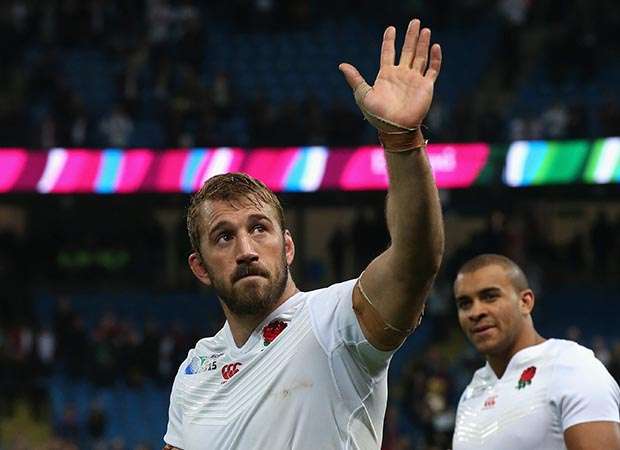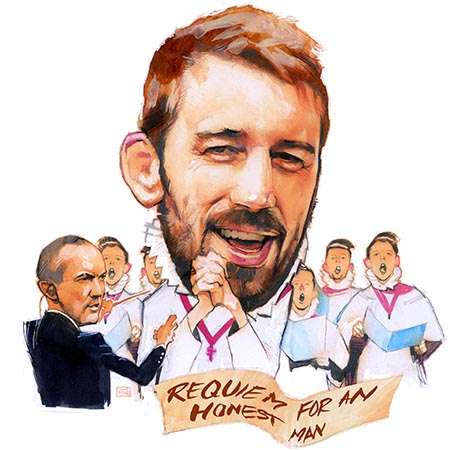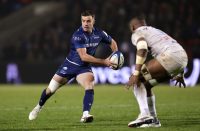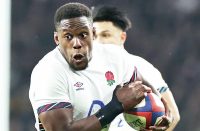 Chris Robshaw’s credentials as an honest man were burnished this week when, in his first post-World Cup interview, the incumbent England captain admitted that he had got the late penalty call against Wales wrong.
Chris Robshaw’s credentials as an honest man were burnished this week when, in his first post-World Cup interview, the incumbent England captain admitted that he had got the late penalty call against Wales wrong.
Robshaw said his decision to spurn the penalty – which could have resulted in a draw – to go for a lineout kick to the corner instead, with England trailing 28-25, was flawed. “If you had a time machine you probably would (change the decision),” he said.
The same can be said of a number of crucial decisions made by Stuart Lancaster during the summer/autumn which precipitated England’s early exit as tournament hosts. The fall-out has led to a complete overhaul of the elite England coaching structure for the first time since 2003, with Lancaster and his assistants, Andy Farrell, Graham Rowntree and Mike Catt, told that their tenure was over.
Robshaw said that he felt for them, but highlighted, quite rightly, that pro sport is an unforgiving business. “As international sportsmen, managers and captains, you are judged on winning. It is tough.”
There is every likelihood that the tough calls that have been made already regarding the Lancaster regime will extend to his captain, with Robshaw unlikely to be reinstated as skipper for the 2016 Six Nations by the new England head coach, Eddie Jones.
Robshaw acknowledged that the writing was on the wall following a recent one-on-one with Jones. He said that if Jones went with another captain, “… I respect that decision and fully back the person”. He added that his main ambition was to be part of the team. “I want to be in the England shirt in the Six Nations,” Robshaw said – pointing out that this desire was irrespective of whether he was captain, and that he would be happy to play anywhere in the back-row, or even prop.
Robshaw’s honesty has solicited a good deal of sympathy and support from rugby pundits, many of whom appear to feel that his past service for England gives him a head start when it comes to Six Nations selection.
 This is nonsense. Robshaw has had the honour of captaining his country in 42 of his 43 starts for England, and that is a good reward for his undoubted commitment and indefatigable effort every time he pulls on the Red Rose jersey.
This is nonsense. Robshaw has had the honour of captaining his country in 42 of his 43 starts for England, and that is a good reward for his undoubted commitment and indefatigable effort every time he pulls on the Red Rose jersey.
He also, deservedly, gained great kudos after captaining England to a record victory over New Zealand at Twickenham in 2012. It was a match in which the team as a whole, and the forwards in particular, played with an intensity at the breakdown against the world champions which they never came close to replicating. It was also a game in which that effort was rewarded by a brilliant individual contribution from Manu Tuilagi, which had the All Blacks reeling.
However, ultimately, England under Lancaster were found wanting on the playing field, and Robshaw was an integral part of that. Although he has many attributes, including a very high work-rate, good hands, and sound if unspectacular tackling, my misgivings that he was a blindside flanker who did not have the instincts, training, or speed of a Test openside have been well documented in these pages over the last four years.
In the World Cup cauldron the gulf in effectiveness between the England captain and the Southern Hemisphere 7s was crystal clear.
Honourable man that he is, by his own admission his captaincy at crucial times lacked judgement and authority. You also wonder what weight his opinion carried when Lancaster opted for conservative containment rather than an attacking strategy against Wales?
Many of the sentimentalists now want Robshaw to continue at blindside for England. The only reason for that to happen is if he wins the shirt on merit. Forget sympathy. There are legions of good, keen, honest men who would give their eye-teeth to wear the Red Rose No.6 shirt – Ed Slater, Dave Ewers, Jackson Wray, Jack Clifford, Maro Itoje, Josh Beaumont, Matt Garvey, Jamie Gibson and Don Armand among them.
None of them have had their chance yet, but that should not matter either. It is not about sharing it around, it is about the best man for the job, and, as Robshaw says, about the team and not the individual.
The last point is the one Robshaw makes about how tough life can be as a modern Rugby Union professional. We should have no illusions about how physically demanding the modern game has become, mainly because of the power and size of the players – much of the super-sizing encouraged by bad law changes – and the increased impact of collisions. There is also the pressure of public/media expectation which is part of elite sport.
The flip side of the coin is that for a young, well-conditioned, physical youngster it is still a dream job to be paid to play a sport that you love. Let’s not forget either that Robshaw and the first academy generation he belongs to are the best-paid and best looked-after Rugby Union players to walk the planet.
However, none of that alters the cardinal rule regarding selection. Namely, that you win the shirt on merit, not sentiment or politics.























